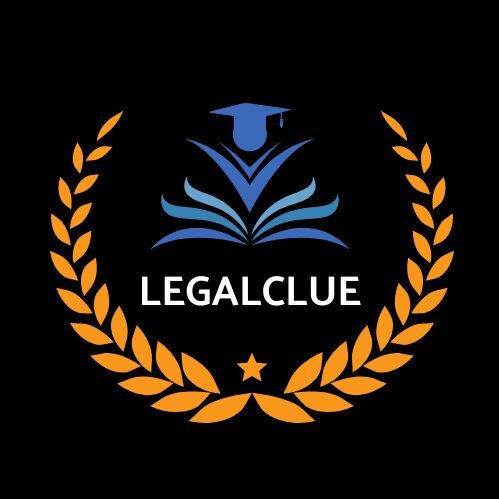Module 1: Advanced Euclidean Geometry
Topics Covered:
- Axioms and Theorems in Euclidean Geometry
- Properties of Parallel Lines with Advanced Proofs
- Advanced Properties of Polygons:
- Sum of Interior and Exterior Angles
- Regular and Irregular Polygons
Practice Questions:
- Prove: The sum of the exterior angles of any polygon is 360∘360^\circ360∘.
- If a regular polygon has 12 sides, find the measure of one interior angle.
- Prove that two lines parallel to the same line are parallel to each other.
Module 2: Advanced Circle Theorems
Topics Covered:
- Tangents to a Circle:
- Properties of Tangents
- Tangents from an External Point
- Angles in a Circle:
- Angles in the Same Segment
- Angle at the Center and at the Circumference
- Advanced Cyclic Quadrilateral Properties
Practice Questions:
- Prove that the tangents drawn from an external point to a circle are equal in length.
- In a cyclic quadrilateral, prove that the opposite angles are supplementary.
- A chord is bisected by a radius at a right angle. Prove that the radius passes through the center.
Module 3: Conic Sections
Topics Covered:
- Parabola:
- Standard Equation and Focus-Directrix Property
- Ellipse:
- Standard Equations and Eccentricity
- Hyperbola:
- Properties and Equations
Practice Questions:
- Derive the equation of a parabola with the focus at (0,2)(0, 2)(0,2) and the directrix y=−2y = -2y=−2.
- Find the eccentricity of an ellipse with the equation x225+y216=1\frac{x^2}{25} + \frac{y^2}{16} = 125×2+16y2=1.
- Sketch the graph of x29−y24=1\frac{x^2}{9} – \frac{y^2}{4} = 19×2−4y2=1 and identify its asymptotes.
Module 4: Advanced Coordinate Geometry
Topics Covered:
- Equation of a Circle:
- General Form
- Tangents and Normals
- Locus and Its Equations
- Advanced Applications:
- Area of Triangles and Quadrilaterals
- Collinearity of Points Using Determinants
Practice Questions:
- Find the equation of a circle with center (2,−3)(2, -3)(2,−3) and radius 555.
- Determine the locus of a point that is equidistant from (1,2)(1, 2)(1,2) and (4,6)(4, 6)(4,6).
- Prove that the points (2,3),(4,5),(−1,−2)(2, 3), (4, 5), (-1, -2)(2,3),(4,5),(−1,−2) are collinear using determinants.
Module 5: 3D Geometry
Topics Covered:
- Introduction to 3D Coordinate Geometry:
- Distance Formula in 3D
- Section Formula in 3D
- Equation of a Plane:
- General and Intercept Forms
- Angle Between Two Planes and Lines
Practice Questions:
- Find the distance between two points (1,2,3)(1, 2, 3)(1,2,3) and (4,6,8)(4, 6, 8)(4,6,8) in 3D space.
- Write the equation of a plane passing through (1,2,3)(1, 2, 3)(1,2,3) and parallel to the XY-plane.
- Find the angle between two planes 2x+3y+z=52x + 3y + z = 52x+3y+z=5 and x−y+4z=6x – y + 4z = 6x−y+4z=6.
Module 6: Transformations in Geometry
Topics Covered:
- Rotations in 2D and 3D
- Advanced Reflections
- Homothety and Scaling in 2D and 3D
Practice Questions:
- Rotate the point (2,−3)(2, -3)(2,−3) about the origin by 90∘90^\circ90∘ counterclockwise.
- Reflect the point (4,5,−2)(4, 5, -2)(4,5,−2) about the XY-plane.
- Scale a triangle with vertices (0,0),(2,0),(1,1)(0, 0), (2, 0), (1, 1)(0,0),(2,0),(1,1) by a factor of 2.
Module 7: Vector Geometry
Topics Covered:
- Vectors in Geometry:
- Vector Addition, Subtraction, and Scalar Multiplication
- Dot Product and Cross Product Applications
- Geometry of Lines and Planes Using Vectors
Practice Questions:
- Find the angle between two vectors a=2i+3j+k\mathbf{a} = 2\mathbf{i} + 3\mathbf{j} + \mathbf{k}a=2i+3j+k and b=i−j+4k\mathbf{b} = \mathbf{i} – \mathbf{j} + 4\mathbf{k}b=i−j+4k.
- Prove that the vectors a=3i−2j\mathbf{a} = 3\mathbf{i} – 2\mathbf{j}a=3i−2j and b=6i−4j\mathbf{b} = 6\mathbf{i} – 4\mathbf{j}b=6i−4j are collinear.
- Find the equation of a plane passing through the point (1,2,3)(1, 2, 3)(1,2,3) and perpendicular to the vector 2i−j+k2\mathbf{i} – \mathbf{j} + \mathbf{k}2i−j+k.
Module 8: Advanced Applications of Geometry
Topics Covered:
- Geometry in Real-Life Problems:
- Navigation and Distance
- Construction and Architecture
- Optimization Problems:
- Shortest Path Between Two Points
- Geometry in Physics and Engineering
Practice Questions:
- A lighthouse is located at (0,0)(0, 0)(0,0) and a ship at (5,12)(5, 12)(5,12). Find the shortest path the ship must take to reach the lighthouse.
- A cable is stretched from the top of a tower (0,h)(0, h)(0,h) to a point on the ground (a,0)(a, 0)(a,0). Find the length of the cable.
- Design a rectangular garden with a given area such that the perimeter is minimized. Use geometry principles to justify your design.
Module 9: Non-Euclidean Geometry
Topics Covered:
- Introduction to Non-Euclidean Geometries:
- Hyperbolic and Spherical Geometry
- Comparison with Euclidean Geometry
- Applications of Non-Euclidean Geometry
Practice Questions:
- Explain why the sum of angles in a triangle is less than 180∘180^\circ180∘ in hyperbolic geometry.
- Calculate the spherical distance between two points on a sphere with a given radius.
- Compare the parallel postulate in Euclidean and hyperbolic geometries.
Module 10: Final Review and Advanced Mock Test
Topics Covered:
- Mixed Questions on All Topics
- Geometry Project:
- Analyze the Structural Design of Famous Buildings
- Create a Model Using Advanced Geometric Principles
- Mock Test for Competitive Exams
Mock Test Sample Questions:
- Prove that the diagonals of a rhombus bisect each other at right angles.
- Derive the standard equation of a hyperbola with foci at (±c,0)(\pm c, 0)(±c,0) and vertices at (±a,0)(\pm a, 0)(±a,0).
- A line passes through the point (1,2,3)(1, 2, 3)(1,2,3) and is parallel to 2i+3j−k2\mathbf{i} + 3\mathbf{j} – \mathbf{k}2i+3j−k. Write its vector equation.
Additional Materials
- Graphing Tools for Visualizing Complex Geometry
- Advanced Problem Sets for Competitive Exams
- **Real-Life Case Studies
4o
